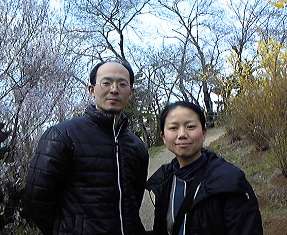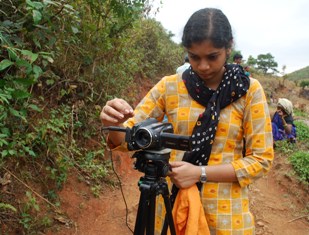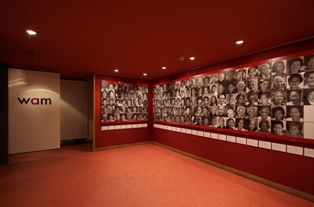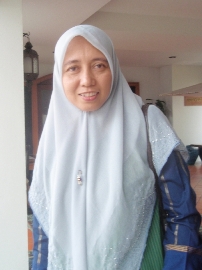Archive by Author
Measuring Machismo
Posted on August 10, 2011, by drini, under gender, stereotypes.
By Eva Allen
Sandwiched in the middle of Central America, with a population of just under six million and a heavily agricultural economy, Nicaragua remains the poorest country in Latin American and the Caribbean after Haiti with a Human Development Index (HDI) ranking of 115. Yet, in the 2010 World Economic Forum (WEF) Global Gender Gap (GGG) Report, it ranks at 30 of 134 countries in terms of gender-based disparities, joining a top 30 club including equality champions Iceland and the Scandinavian states, and wealthy nations Australia, the US, and the UK. The report’s message is clear - bulging state coffers are not the sole prerequisite for establishing frameworks for fairness and gender equality.
(more…)
61 Comments
Afghanistan, The Worst Place To Be A Mother Or A Child
Posted on July 16, 2011, by drini, under children, gender, reproductive health.
In spite of U.S-led military invasion since 2001 to bring “enduring freedom” and democracy, about 50 women die in childbirth each day in Afghanistan; one in three is physically or sexually abused, and the average life expectancy of women is 44 years.
23 Comments
Japan must stop nuclear power
Posted on April 18, 2011, by drini, under Gender Masala.

By Ayako Oga
I lived in Okuma-machi, a hamlet in Fukushima prefecture, which is just 6 kilometers from the now crippled Fukushima Daiichi nuclear power plant. It was a beautiful and quiet area with a close knit community that was a mix of both young and old people. Naturally, all our lives have changed drastically after the huge earthquake hit on March 11. The most difficult thing to comprehend and accept is the high radiation contamination in our area that has made it starkly clear to me that I will never be able to return home. It’s also difficult because we had just built a new home and I was buying new curtains and plants for the garden when this tragedy struck. My husband and I are still assessing the situation while we now live with my parents in Tokyo. (more…)
19 Comments
Nepal`s single women instigate much needed change
Posted on March 7, 2011, by drini, under Gender Masala.

By Lily Thapa.
Director and founder of Women for Human Rights, working to support single women who have lost their husbands.
When my husband died I was 29 years old with two young children. I was educated and from a professional middle-class family in Katmandu, the capital of Nepal. My husband was of similar background.
But with his death I realized for myself that education could make inroads into a society only up to a point. In Nepal which is mostly a Hindu society, deep-rooted religious traditions, some of them blatantly discriminating against women, are difficult to change. And this is what I faced, an experience so traumatic that I was jolted into working for change.
(more…)
225 Comments
Meeting Nobuko Kan–wife of Japanese prime minister, Naoto Kan
Posted on January 14, 2011, by drini, under Gender Masala.
By Suvendrini Kakuchi

There was a buzz of excitement at the Foreign Correspondent’s Club of Japan that invited Nobuko Kan, wife of the Japanese Prime Minister, Naoto Kan, to speak to the press. After all, as First Lady of the country, her comments and opinions are important, not only for learning more about Japan`s leader now struggling with poor approval rates, but also as a woman who, whether she likes it or not, is a role model for the female population that faces huge challenges in a country mired with a sluggish economy and low birth rates. (more…)
160 Comments
Being called a war freak
Posted on November 25, 2010, by drini, under Gender Masala.
By Fuyuko Nishisato
Journalist and author

Standing (left) by the Unit 731 Museum in Pingfan, near Harbin with daughter and grandson of a Chinese human guunea pig. The daughter discovered her father was arrested and sent to Unit 731 more than sixty after the end of World War ll in 1945. The discovery of his record as anti-Japanese Russian spy was made available to her through the Imperial Japanese Army Kempeitai (Japanese version of Gestapo) records that were discovered in postwar China.
Shocked by sufferings of A-bomb survivors
I have been working in the field of TV journalism for nearly 30 years, mainly for Western television stations covering Japan. During my school education I had learned very little about World War ll and the human suffering caused from that war.
When I covered for the first time the A-bomb survivors of Hiroshima and Nagasaki for a BBC Television documentary, I could not stay in the display room of Peace Memorial Museum much longer than 30 minutes. I felt like I was being suffocated when I faced to their stories and had to get out to take a deep breath. (more…)
146 Comments
Small energy projects empowers women at the grass-root level
Posted on November 9, 2010, by drini, under Gender Masala.

by Karuna D’Souza
Community Radio Trainer
Laya, Vanantharam
Addateegala, East Godavari District
Andhra Pradesh - 533 428
I was introduced to Climate Change in 1993. At that time I was 7 years old. Climate change meant that my mother would get to travel to different countries and return with something nice. She still travels to different countries following the Conference of Parties (COP) but now returns with information and valuable reports. And also of couse, something nice.
111 Comments
Justice to the “comfort women” survivors
Posted on October 22, 2010, by drini, under Gender Masala.
By Mina Watanabe

Women’s Active Museum (WAM) celebrated its 5th anniversary in August 2010. It is a huge step for us and in the Japanese women’s movement to stop violence against women during conflict and in daily life. We are deeply committed to this cause and will continue our activities till we achieve our purpose. (more…)
120 Comments
Muslim women living in Southern Thailand want peace
Posted on October 18, 2010, by drini, under Gender Masala.
By Soraya Jamjuree
 It is a great pleasure to write about our visions of peace for this blog site. I wear two hats—one as director of Friends of the Victimized Families Groups and also I work as a researcher on peace. Both these activities are under the auspices of the Prince of Songla University in Pattani. Peace for women, including Muslim women, living in conflict area means being able to live without harassment. They want to feel safe and want their families to be treated with respect. (more…)
It is a great pleasure to write about our visions of peace for this blog site. I wear two hats—one as director of Friends of the Victimized Families Groups and also I work as a researcher on peace. Both these activities are under the auspices of the Prince of Songla University in Pattani. Peace for women, including Muslim women, living in conflict area means being able to live without harassment. They want to feel safe and want their families to be treated with respect. (more…)
104 Comments
Indian Women’s Rights to Safe Toilets
Posted on September 6, 2010, by drini, under Gender Masala.
By Karen Ma
author/gender researcher
 Access to toilets for us who are raised in the developed world is a given. But in India’s case, a severe shortage of clean and safe toilets is not only affecting the health of its women, but directly hampering efforts to empower them. (more…)
Access to toilets for us who are raised in the developed world is a given. But in India’s case, a severe shortage of clean and safe toilets is not only affecting the health of its women, but directly hampering efforts to empower them. (more…)

